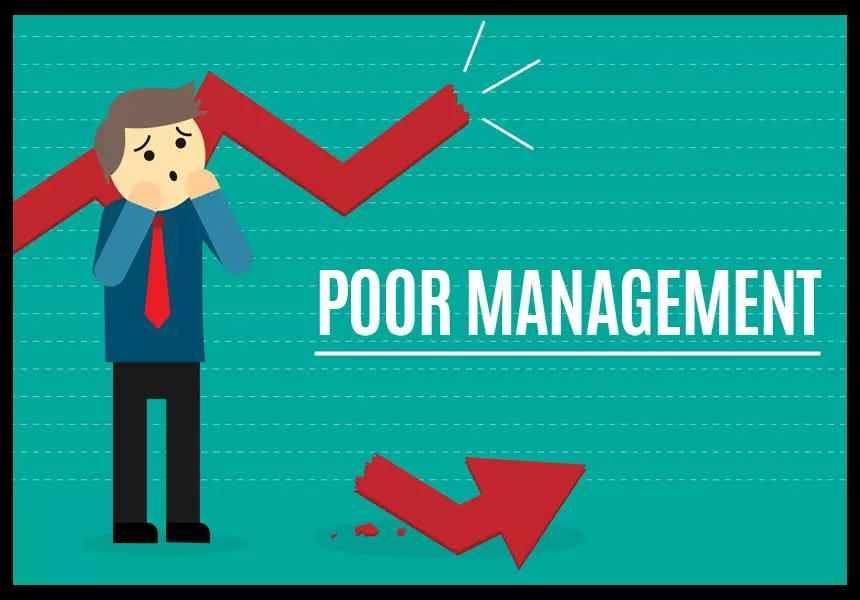As a leader, manager or supervisor of an organisation, you are responsible to create an environment at the workplace that enables people to thrive. What people underestimate is that Human Resource (HR) policy plays a vital role in the success of any business! The requirements on HR departments to formulate policies that can enable businesses to operate smoothly have never been higher.
HR Planning is integral to the efficient running and continued success of companies. Sometimes, many organisations have a poorly skilled management team in terms of “EI” and “Soft Skills” in addition to an inconsequential HR department. This can be due to several reasons such as certain business factors or extraneous circumstances. Consequently, the result of a poor human resource planning has an immediate and long-term impact in terms of recruitment procedure, management and overall profitability. This in turn affects the company’s daily functioning.
An incompetent and poorly functioning HR department reflects the overall state of affairs of an organisation and its possible uncompetitive position in the marketplace. There is a disconnect between the HR Department and the Executive Management which as a result leads to miscommunication, poor decision making on operational aspects and critical mistakes. Employee training and development programs are not properly budgeted or even planned and there is no design hiring process or hiring practices that work. A Bad HR planning ensures that the HR assets of an organization are not aligned to its organizational goals and objectives. A failure in this regard can hurt businesses seriously.
The Consequences
1. Unhappy Employees - decreases productivity, engagement and workplace morale – contagious.
2. Dissatisfied Customers - unhappy employees can never make customers happy as they treat customers just the way their company treats them – boomerang effect. The worst part is dissatisfied customers are four times more likely to buy from a competitor brand and spread negative word of mouth – brand damaging.
3. High Employee Turnover - especially of productive and skillful workers.
4. Loss of Business - when an experienced employee leaves, the business not only loses a great worker but it also loses the value which the employee carries with him/her and the clients he/she had built strong relations with over a period of time. The misery just doesn’t end here – loss of trust, extensive knowledge of products, services, processes and systems which makes them even more valuable.
More importantly and on top of it, these employees have unparalleled experience which enables companies to know what has worked for them and what has not worked for them at all in the past. Another domino effect is that good employees have a beneficial influence on their co-workers therefore their “departure” badly impacts the culture of an organisation too.
5. Increased Business Costs - finding a replacement is often inevitable – recruiting process, adequate employee training, acquiring new customers – incur higher costs.
6. Unmotivated Employees - due to indifferent attitude of the top management, key position holders and HR can quickly filter across the entire organisational structure and hierarchies. Therefore, work ethics can be affected, personality conflicts arise and teamwork becomes non-existent. As well as this, poor motivation, lack of communication and recognition lead to an overall poor performance.
7. Employee Demand-Supply Mismatch - is based on the continuous business cycle such as business growth, expansion plans and requirements for specific projects where the “right” employees need to be hired. In a mismanaged organisation, HR personnel, management and/or supervisors with a lack of awareness in personnel needs, misdirected attitude and lack of communication are hard-pressed to address workforce requirements. Vacancies and job-postings either don’t get filled in time or don’t get filled at all (i.e. The Trump Administration), negatively affecting key business functions – “knock-on effect” across organization.
8. Organisational Re-Structures – Due to a malfunctioning business practice, decisions taken by top managers such as organizational re-structures, aim to improve the overall performance of a business and at monitoring the effectiveness of an organization's structures, but often leads to the exact opposite. Most of the key positions of an organisation perform their roles in a way that only reflects and focuses on their own personal goals. The personal preferences and agendas of a department’s senior managers influence the performance outcomes of that department. The organizational structure is inorganic, lacks alignment and is less versatile which tend to cause miscommunication in the overall strategy of the organisation. An open and fluid structure will have a more exemplary performance record.
The Top Five Signs that Define Poor Management
1. Micromanagement
2. Poor Communication
3. Stubbornness (i.e, not willing to listen to feedback or adapt to change)
4. Not Making Productive Use of Employees
5. Bad Attitude or Lack of Honesty towards Employees
These people shouldn’t be in key positions to lead or manage employees! When employees appreciate the tenor of their workplace, they thrive and perform better which in turn creates a better employee-retention rate and naturally improves productivity of a company.
Other senior personnel might have their goals in the right place, but execute them in ways that end up hurting the company and its reputation in the long run. Sometimes, the rules of the top management might have had logical beginnings but end up being completely ridiculous.





Leave your comments
Post comment as a guest